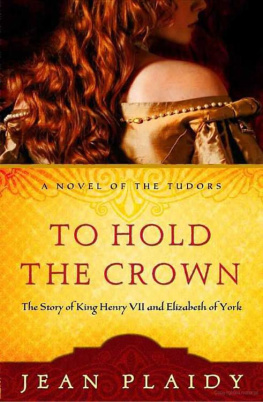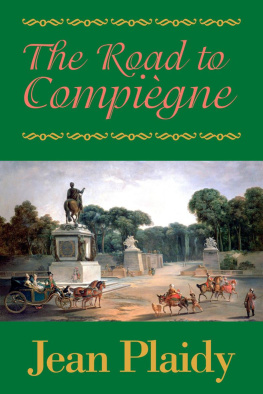Jean Plaidy - Katharine, the Virgin Widow
Here you can read online Jean Plaidy - Katharine, the Virgin Widow full text of the book (entire story) in english for free. Download pdf and epub, get meaning, cover and reviews about this ebook. genre: History. Description of the work, (preface) as well as reviews are available. Best literature library LitArk.com created for fans of good reading and offers a wide selection of genres:
Romance novel
Science fiction
Adventure
Detective
Science
History
Home and family
Prose
Art
Politics
Computer
Non-fiction
Religion
Business
Children
Humor
Choose a favorite category and find really read worthwhile books. Enjoy immersion in the world of imagination, feel the emotions of the characters or learn something new for yourself, make an fascinating discovery.

- Book:Katharine, the Virgin Widow
- Author:
- Genre:
- Rating:3 / 5
- Favourites:Add to favourites
- Your mark:
- 60
- 1
- 2
- 3
- 4
- 5
Katharine, the Virgin Widow: summary, description and annotation
We offer to read an annotation, description, summary or preface (depends on what the author of the book "Katharine, the Virgin Widow" wrote himself). If you haven't found the necessary information about the book — write in the comments, we will try to find it.
Katharine, the Virgin Widow — read online for free the complete book (whole text) full work
Below is the text of the book, divided by pages. System saving the place of the last page read, allows you to conveniently read the book "Katharine, the Virgin Widow" online for free, without having to search again every time where you left off. Put a bookmark, and you can go to the page where you finished reading at any time.
Font size:
Interval:
Bookmark:
Jean Plaidy
Katharine, the Virgin Widow
The Arena
THE SUN PICKED OUT SHARP FLINTS IN THE GRAY WALLS OF the towers so that they glinted like diamonds. The heat was great, and the courtiers sweated beneath their stomachers over which their doublets were elegantly laced; they did not move even to throw back their long loose-sleeved gowns. Each man and woman among them was intent on what was going on in the arena before them, where a lionone of the finest and fiercest in the Kings menageriewas engaged in a bloody fight with four English mastiffs. The dogs were sturdy and game; but this lion had never been beaten. He roared his contempt of the four dogs, and the spectators cheered him.
Now, Rex, get to work, shouted a boy who was seated among the royal party. His cheeks were ruddy, his hair gleamed reddish gold in the sunlight; and his voice was shrill with excitement.
The girl who sat beside him, and who was a few years older, laid a restraining hand on his arm; and several people let their attention stray from the animals to the children. Many found themselves catching the boys excitement, for there was something infectious about the vitality and gaiety of young Prince Henry.
As for Henry, he was aware of nothing but the fight in the arena. He wanted the mastiffs to win, yet he did not believe they could. Rex was the finest lion in the world, which was why he had been called Rex.
The King from his seat of honor was watchful. He sat erect, not so magnificently attired as many of his subjects, for he was a man who resented wasting money on outward show. Money, in his opinion, should be used to create more money. It had been his policy ever since Bosworth Field. And the result? A depleted treasury was now a full one, carefully watched over by the Kings miserly eye, continually augmented by his clever schemes; although he would be the first to admit that he owed a great deal to those two able ministers of hisRichard Empson and Edmund Dudleywho now sat near the royal party, their lawyers eyes alert.
The Kings gaze rested briefly on his Queena beautiful woman of whom he was secretly proud. But he was not a man to show his feelings and would never allow Elizabeth of York to know how much he esteemed her. When a mans claim to the throne was doubtful, when there was the hint of bastardy among his forbears, he must be careful. Henry VII was a careful man.
Elizabeth had been a good wife and he had never regretted the marriage, even when he considered his early love for Maud Herbert and his more mature passion for Katherine Lee. He was not a man who would allow his emotions to interfere with his ambitions.
Once Richard III had been defeated, once Henry knew that the great ambition was about to be realized, he had ceased to think of Katherine Lee; he had known there was only one suitable bride for him, and that was Elizabeth of York, that the Houses of York and Lancaster might thus be united and bring peace to England. Henry VII would never wage war if he could help it, for to him it represented the loss of gold.
He looked at his family and allowed his feeling of pleasure temporarily to turn up the corners of his stern mouth. Two sons and two daughters.
Fair enough, fair enough, he murmured to himself.
Elizabeth had been six times pregnant and they had lost only two so far, which, considering the fate of most children, was good fortune indeed.
It was true that Arthur, the eldest and Prince of Wales, who was not quite fifteen, was a sickly boy. He was handsome enough with his pretty pink and white complexion, but that was not in his case the sign of health. Arthur coughed too much; there were occasions when he spat blood; yet he lived.
Perhaps there would have been cause for anxiety if Arthur had not possessed such a brother as Henry. There was a Prince to delight the eyes of any parent. Glances were even now straying to this ten-year-old boy. It was the same when they went among the people. It was young Henry whom the people called for. It was for him they had their smiles. Fortunately, Arthur had the sweetest temper and knew no envy. But perhaps he was too tired to feel envy; perhaps he was grateful to this robust, vital brother who could appear so fresh at the end of a days riding, who always knew how to respond to the peoples applause.
Between the two boys sat Margaret, a dignified Princess, looking older than twelve, keeping a watchful eye on her exuberant brother Henry who, strangely, did not seem to resent this. It was pleasant to see such affection between a brother and sister. And on the other side of Henry sat Mary, an enchanting creature of five years, a little wilful, because she was so pretty perhaps and doubtless over-pampered because of it.
Four children, mused the King, and Arthur the only one whose health gives cause for anxiety. Edwards daughter has done her duty well.
The Queen turned to him and was smiling. She read his thoughts. She knew that he was studying the children and had been thinking: Theres time for more.
Elizabeth of York stilled the sudden resentment which rose within her. The only real desire her husband would feel would be for the aggrandizement of the throne. She was dear to him, she knew, not because of any beauty or talents she might possess, but because she was the daughter of Edward IV, and when she married him the union had brought peace to England; she had also given him children, four of whom were living.
There was tension among the spectators, and the Kings attention was now on the arena, where the battle was not going according to expectations. Rex was lying on his back while one of the mastiffs had him by the throat; the others were leaping on him, tearing his flesh, their jaws bloody.
Prince Henry had risen to his feet.
They have beaten Rex, he cried. Oh, bravobravo!
The cry was taken up among the spectators, as the body of Rex lay lifeless and the dogs continued to worry it.
The Queen leaned slightly towards the King.
I would not have believed that the dogs could defeat the lion.
The King did not answer, but beckoned to one of the keepers of his menagerie.
Take the dogs away, he said; remove the carcass of the lion and then return to me.
As the man bowed low and went off to obey the Kings command, an excited chatter broke out among the children.
Henry was shouting: Did you see? Arthur, did you see?
Arthur was pale. He murmured: I like not these sports.
Henry laughed at him. I like sport better than anything in the world, and never have I seen such a battle.
Mary asked: What has happened to the lion? But no one took any notice of her.
Margaret gripped Henrys arm. Be silent, she whispered. Do you not see that our father is displeased?
Henry turned to stare at the King. But why he began. I should have thought it was good sport. I
The Kings stern eyes rested on his son. Henry, he said, one day you will learn that what you think is of far more interest to yourself than to others.
Henry looked puzzled, but it was impossible to check his exuberance.
The King signed to one of the keepers. Let the bears and the ban-dogs be brought on, he said.
* * ** * ** * *THE COMPANY STARED AGHAST.
Before them in the arena scaffolds had been set up and on these hung the bodies of the four English mastiffs, the dogs which, but half an hour before, had conducted themselves so valiantly against the Kings fiercest lion.
The King silently watched the assembly. His chief counsellors, Dudley and Empson, watched also.
The farce was ended, but everyone should have learned the lesson it was intended to convey.
The dogs had been sentenced to death for treason. They had dared to destroy Rex the lion. They were traitors.
The King had ordered the sentence to be read before the ropes were put about the animals necks. Then he had said in his low sombre voice: So perish all traitors!
Font size:
Interval:
Bookmark:
Similar books «Katharine, the Virgin Widow»
Look at similar books to Katharine, the Virgin Widow. We have selected literature similar in name and meaning in the hope of providing readers with more options to find new, interesting, not yet read works.
Discussion, reviews of the book Katharine, the Virgin Widow and just readers' own opinions. Leave your comments, write what you think about the work, its meaning or the main characters. Specify what exactly you liked and what you didn't like, and why you think so.



